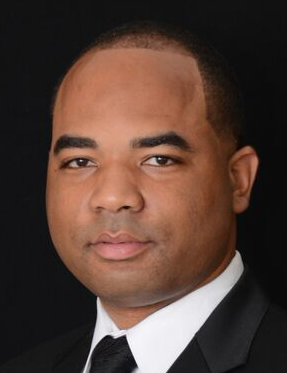
The first session in the series has ended. Find links to archived session recordings, transcripts, and audio recordings below.
Join the Center for Evidence-Based Crime Policy and the WestEd Justice & Prevention Research Center for An Important Online Conversation
The criminal justice system in the United States has grappled for many decades with racial and ethnic disparities in its outcomes. Findings from studies of juvenile justice, policing, pretrial and bail decisions, sentencing, and corrections consistently indicate inequities in the experiences of Black, Native American and Indigenous, and Hispanic American people in the criminal justice system compared to those of white people.
The fundamental question that connects the work of researchers to that of policymakers and practitioners is, “What can we do to mitigate systemwide disparities?”
Join the Center for Evidence-Based Crime Policy and the WestEd Justice & Prevention Research Center for a series of engaging online conversations that will use scientific evidence to explore this critical issue.
This first discussion in the series features leading scholars and experts who will examine whether training innovations in procedural justice, implicit bias, de-escalation, and community policing can lead to more equitable outcomes.
Professors Robin Engel, Lorie Fridell, and Tracey Meares, as well as Deputy Chief Tarrick McGuire will share research, evidence, and operational practices to tackle this important question and promote systemwide change.
Session Title: Can Racial and Ethnic Disparities Be Mitigated Through Police Training?
Date: January 12th, 2021
Time: 12:00 p.m.-1:15 p.m. (Eastern) / 9:00 a.m.-10:15 a.m. (Pacific)
Host: Anthony Petrosino, WestEd
Moderator: Cynthia Lum, Center for Evidence-Based Crime Policy at George Mason University
Please contact Danny Torres at [email protected] if you would like more information about the series and registration. Future event dates will be announced soon.
Featured Speakers
 Tracey L. Meares is the Walton Hale Hamilton Professor and a Founding Director of the Justice Collaboratory at Yale Law School. Before joining the faculty at Yale, she was a professor at the University of Chicago Law School from 1995 to 2007, serving as Max Pam Professor and Director of the Center for Studies in Criminal Justice. Professor Meares is a nationally recognized expert on policing in urban communities. Learn More.
Tracey L. Meares is the Walton Hale Hamilton Professor and a Founding Director of the Justice Collaboratory at Yale Law School. Before joining the faculty at Yale, she was a professor at the University of Chicago Law School from 1995 to 2007, serving as Max Pam Professor and Director of the Center for Studies in Criminal Justice. Professor Meares is a nationally recognized expert on policing in urban communities. Learn More.
 Lorie Fridell, Ph.D is a Professor in the Department of Criminology at the University of South Florida (USF). Prior to joining USF, she served for six years as the Director of Research at the Police Executive Research Forum in Washington, D.C. Fridell has over 30 years of experience conducting research on law enforcement, and is a national expert on biased policing. Learn More.
Lorie Fridell, Ph.D is a Professor in the Department of Criminology at the University of South Florida (USF). Prior to joining USF, she served for six years as the Director of Research at the Police Executive Research Forum in Washington, D.C. Fridell has over 30 years of experience conducting research on law enforcement, and is a national expert on biased policing. Learn More.
 Robin S. Engel, Ph.D is Professor of Criminal Justice at the University of Cincinnati (UC) and Director of the International Association of Chiefs of Police (IACP) / UC Center for Police Research and Policy. Engel is a nationally recognized expert on policing, engaging in research and evaluation with expertise in assessments of police behavior, police-community relations, and crime reduction strategies. Learn More.
Robin S. Engel, Ph.D is Professor of Criminal Justice at the University of Cincinnati (UC) and Director of the International Association of Chiefs of Police (IACP) / UC Center for Police Research and Policy. Engel is a nationally recognized expert on policing, engaging in research and evaluation with expertise in assessments of police behavior, police-community relations, and crime reduction strategies. Learn More.
 Chief Tarrick McGuire began a career in public service with the Arlington Police Department in 2003. During his tenure, he has served in multiple positions before being appointed to Deputy Police Chief in 2018. As a nationally recognized public speaker and published author, Chief McGuire has been a leading authority on community-police relations, evidence-based policing, police reform and improving public policy. Learn More.
Chief Tarrick McGuire began a career in public service with the Arlington Police Department in 2003. During his tenure, he has served in multiple positions before being appointed to Deputy Police Chief in 2018. As a nationally recognized public speaker and published author, Chief McGuire has been a leading authority on community-police relations, evidence-based policing, police reform and improving public policy. Learn More.
 Cynthia Lum is Professor of Criminology, Law and Society and Director of the Center for Evidence-Based Crime Policy at George Mason University. She researches primarily in the areas of policing, evidence-based crime policy, crime prevention, technology, and translational criminology. She is a national expert on evidence-based policing and the founding editor of Translational Criminology Magazine. Learn More.
Cynthia Lum is Professor of Criminology, Law and Society and Director of the Center for Evidence-Based Crime Policy at George Mason University. She researches primarily in the areas of policing, evidence-based crime policy, crime prevention, technology, and translational criminology. She is a national expert on evidence-based policing and the founding editor of Translational Criminology Magazine. Learn More.
 Anthony Petrosino serves as Director of WestEd’s Justice & Prevention Research Center. He co-directs several projects for the Center including studies funded by the U.S. National Institute of Justice and the Robert Wood Johnson Foundation, and co-directs WestEd’s work on the National Reentry Resource Center. Petrosino also serves as Senior Fellow and Affiliated Faculty at the George Mason University Center for Evidence-based Crime Policy. Learn More.
Anthony Petrosino serves as Director of WestEd’s Justice & Prevention Research Center. He co-directs several projects for the Center including studies funded by the U.S. National Institute of Justice and the Robert Wood Johnson Foundation, and co-directs WestEd’s work on the National Reentry Resource Center. Petrosino also serves as Senior Fellow and Affiliated Faculty at the George Mason University Center for Evidence-based Crime Policy. Learn More.
About the Centers
The Center for Evidence-Based Crime Policy (CEBCP), housed within the Department of Criminology, Law and Society at George Mason University, seeks to make scientific research a key component in decisions about crime and justice policies. The CEBCP carries out this mission by advancing rigorous studies in criminal justice and criminology through research-practice collaborations, and proactively serving as an informational and translational link to practitioners and the policy community. Learn more at cebcp.org.
The WestEd Justice & Prevention Research Center highlights the rigorous research and evaluation work that WestEd researchers are conducting in the areas of school safety, violence and crime prevention, juvenile and criminal justice, and public health. A primary goal of the Center is to become a “trusted” source of evidence on the effects of policies and programs in these areas. In addition to conducting research and evaluation studies, Center staff promote the use of scientific evidence in making decisions about programs, policies, and practices relevant to justice and prevention. Learn more at jprc.wested.org.


